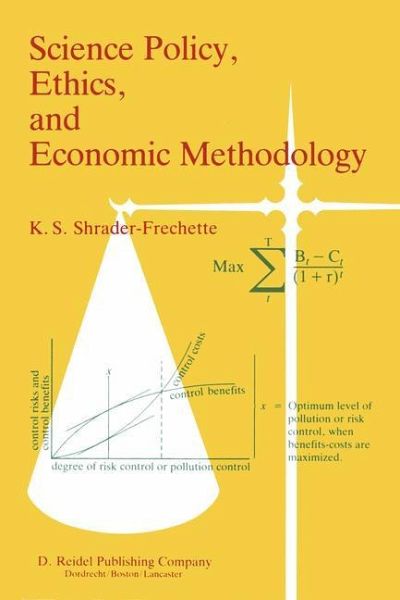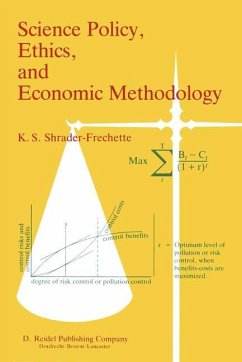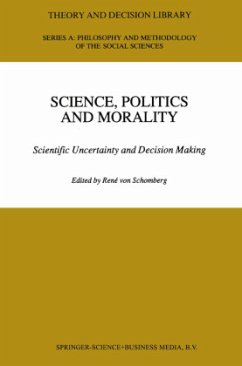
Science Policy, Ethics, and Economic Methodology
Some Problems of Technology Assessment and Environmental-Impact Analysis
Versandkostenfrei!
Versandfertig in 1-2 Wochen
115,99 €
inkl. MwSt.
Weitere Ausgaben:

PAYBACK Punkte
58 °P sammeln!
If indeed scientists and technologists, especially economists, set much of the agenda by which the future is played out, and I think they do, then the student of scientific methodology and public ethics has at least three options. He can embrace certain scientific methods and the value they hold for social decisionmaking, much as Milton Friedman has accepted neoclassical econom ics. Or, he can condemn them, regardless of their value, much as Stuart Hampshire has rejected risk-cost-benefit analysis (RCBA). Finally, he can critically assess these scientific methods and attempt to provide solutio...
If indeed scientists and technologists, especially economists, set much of the agenda by which the future is played out, and I think they do, then the student of scientific methodology and public ethics has at least three options. He can embrace certain scientific methods and the value they hold for social decisionmaking, much as Milton Friedman has accepted neoclassical econom ics. Or, he can condemn them, regardless of their value, much as Stuart Hampshire has rejected risk-cost-benefit analysis (RCBA). Finally, he can critically assess these scientific methods and attempt to provide solutions to the problems he has uncovered. As a philosopher of science seeking the middle path between uncritical acceptance and extremist rejection of the economic methods used in policy analysis, I have tried to avoid the charge of being "anti science". Fred Hapgood, in response to my presentation at a recent Boston Colloquium for the Philosophy of Science, said that my arguments "felt like" a call for rejection of the methods of risk-cost-benefit analysis. Not so, as Chapter Two of this volume should make eminently clear. All my criticisms are construc tive ones, and the flaws in economic methodology which I address are uncovered for the purpose of suggesting means of making good techniques better. Likewise, although I criticize the economic methodology by which many technology assessments (TA's) and environmental-impact analyses (EIA's) have been used to justify public projects, it is wrong to conclude that I am anti-technology.














